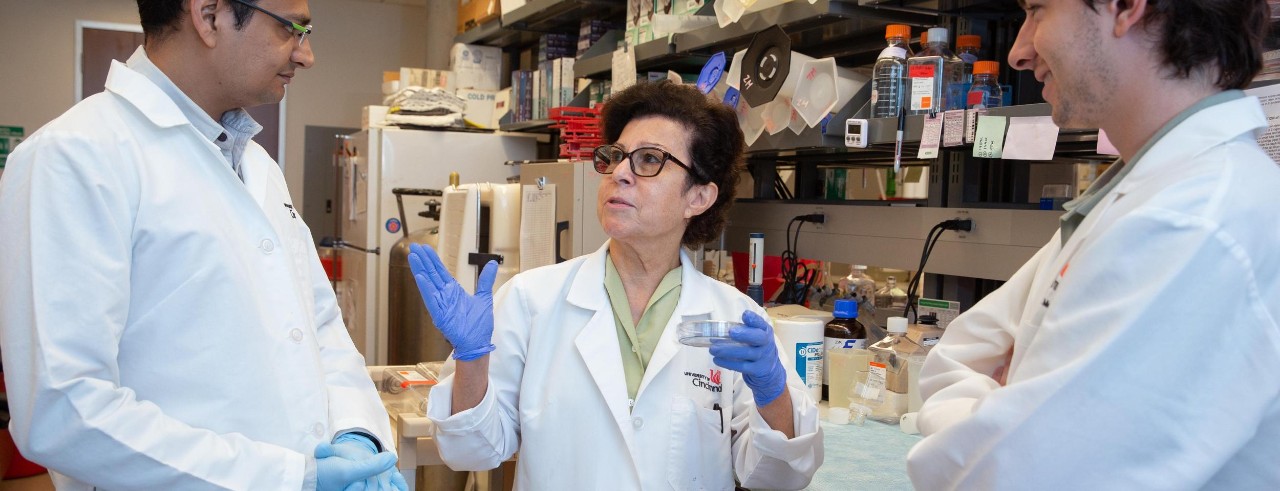
UC research aims to prevent skin cancer while getting a tan
WJXT highlights work of Venture Lab-backed startup
Research from the University of Cincinnati could allow people to get a healthy tan, avoid wrinkles and protect themselves from skin cancer, WJXT in Jacksonville, Florida, reported.
Zalfa A. Abdel-Malek, PhD, a professor of dermatology in the UC College of Medicine, is leading a team that's developing a topically applied cream that would start a sunless tanning process.
“What you’re doing with our peptides is you’re activating your skin’s natural ability to increase pigmentation,” Abdel-Malek said in a story that was distributed nationally by Ivanhoe Broadcast News. “So, when you go out in the sun, you’re not going to have the drastic and dangerous effects of sun exposure.”
Abdel-Malek's cream would work better than commercially available spray tans, she said. Current options color the skin but don’t activate the receptors that reduce DNA damage.
The cream could be commercially available in the next few years, Abdel-Malek said. With the help of the UC Venture Lab within the 1819 Innovation Hub, she’s created a startup, MC1R Ventures, to develop the product.
Featured image at top: Zalfa A. Abdel-Malek, center, is developing a topically applied product to initiate sunless tanning, which could have medical and cosmetic applications. Photo/Andrew Higley/UC Marketing + Brand
About UC Venture Lab
A leading model for urban-centered universities, the UC Venture Lab activates a high density of rapidly curated startup opportunities that attract outside entrepreneurial talent and investors. We connect university students, faculty, staff, and alumni to talent and funding to help launch new companies. Our team includes Office of Innovation staff as well as Entrepreneurs-in-Residence (EIRs), coaches, curated service providers, and subject matter experts.
Related Stories
Finding community and building a future
July 9, 2021
As a University of Cincinnati College of Medicine student, Sarah Appeadu, MD, ’21, remembers journaling on the “3 Cs” that got her through medical school: Community, community, community. Now, when she lists the people who supported her through four years of training—the last year in a global pandemic—it keeps growing: her family, her church, her classmates, and the college’s Office of Student Affairs and Office of Diversity, Equity and Inclusion. “I look back and it was such a crucial time to really be nurtured in that way,” she says. “I’m so thankful that I had those people. It shows being around the right people really mattered. That’s my same hope for residency even.”
New York Times: Flint Weighs Scope of Harm to Children Caused by Lead in Water
February 1, 2016
Kim Dietrich, a professor of environmental health at UC's College of Medicine, is quoted in this story on the medical problems that could develop among the thousands of young children exposed to lead-contaminated water in Flint, Mich.
Cancer-Causing Gene Found in Plasma May Help Predict Outcomes for Patients
February 18, 2016
Researchers at the University of Cincinnati have discovered that a human cancer-causing gene, called DEK, can be detected in the plasma of head and neck cancer patients.
